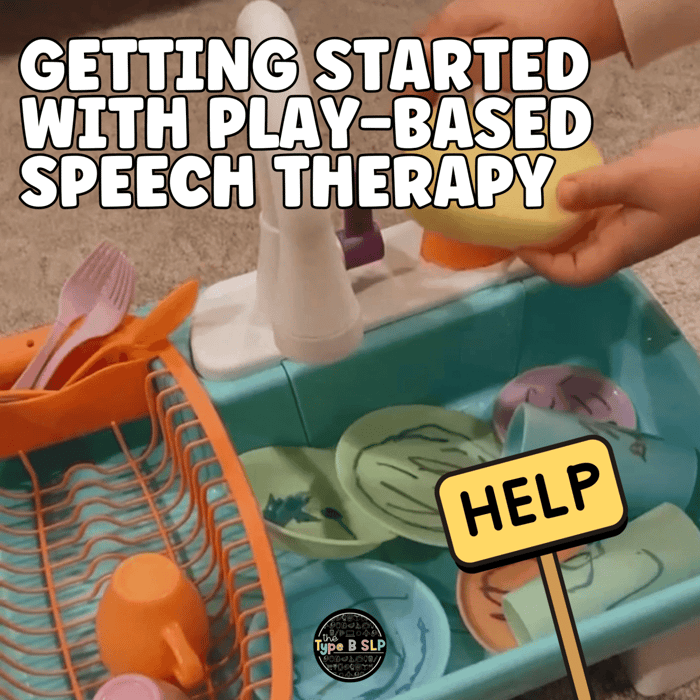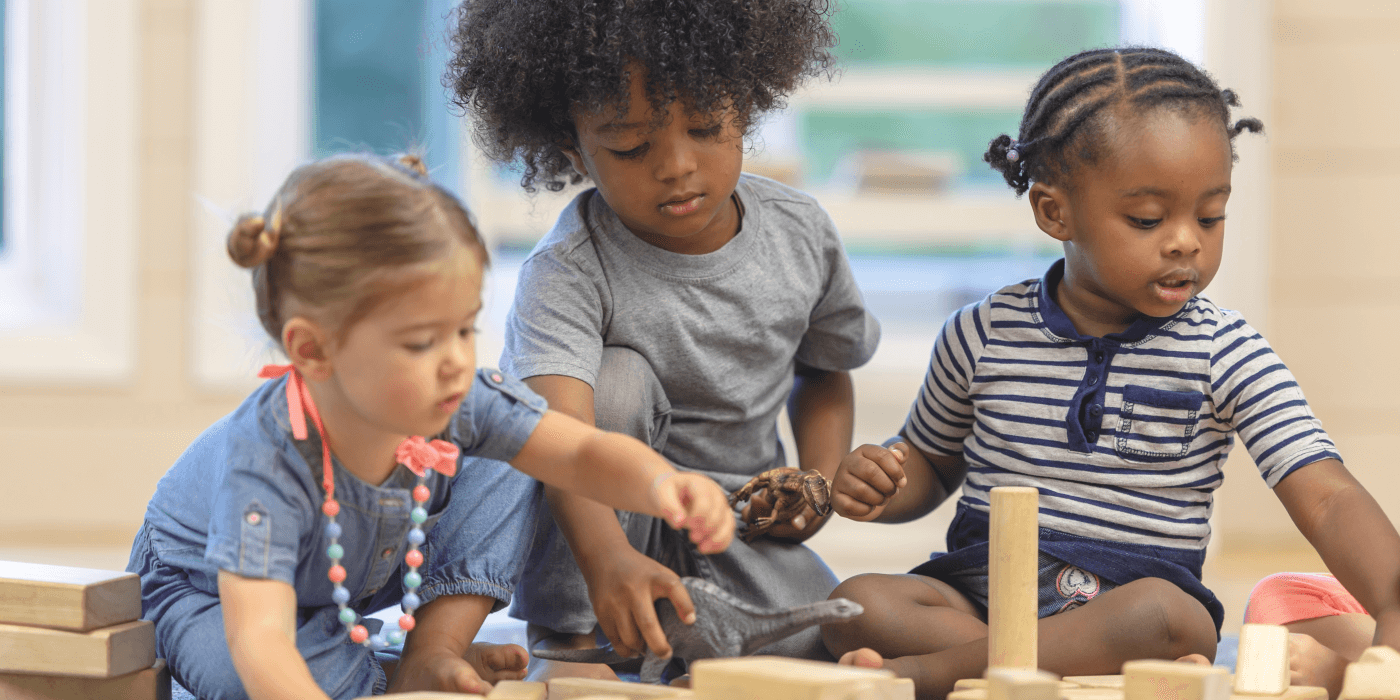
5 Tips for Getting Started with Play-Based Speech Therapy
Let's talk play-based speech therapy! It can be extremely overwhelming to figure out where to begin when utilizing play-based speech therapy in our sessions. Incorporating play into your speech sessions not only engages clients but it also creates an environment where learning becomes an exciting adventure. Here are five essential tips to help you get started with play-based speech therapy and make a lasting impact on your young clients.

1. Understanding the Power of Play:
Play is the universal language of childhood, and it can be a powerful tool for speech therapy. Begin by understanding the different types of play and how they contribute to language development. From symbolic play with dolls and action figures to constructive play with building blocks, each form serves a unique purpose in targeting specific speech goals. Recognizing the inherent value of play lays the foundation for effective therapy sessions.
2. Tailoring Activities to Speech Goals:
The key to successful play-based speech therapy lies in aligning playful activities with targeted speech goals. Whether it's improving articulation, language comprehension, or social communication, carefully select toys and games that address specific objectives. For instance, using a tea party set can enhance articulation by incorporating words like 'pour,' 'sip,' and 'share.' Tailoring activities to individual needs ensures that playtime becomes a purposeful means of achieving speech milestones. It's also great when parents can engage in these activities, to give them a chance to see how simple it can be to combine the child's toys with goals.
3. Creating a Playful Environment:
Set the stage for success by creating an environment that encourages exploration and communication. Arrange your therapy space with colorful and inviting toys that capture children's attention. Keep things at eye-level so children can explore, touch, and check out different toys in your space. Establishing a safe and playful atmosphere fosters a sense of comfort and trust, allowing children to express themselves more freely. Consider using sensory-friendly materials to accommodate diverse needs and create a welcoming space for every child.
4. Incorporating Parental Involvement:
Extend the benefits of play-based speech therapy beyond the therapy room by involving parents in the process. Share insights into the importance of play for speech development and provide guidance on incorporating play-based activities at home. Encourage parents to actively participate in therapy sessions, making them partners in their child's progress. This collaborative approach enhances the overall effectiveness of play-based interventions. Parents watching the session is powerful, but actually engaging with the child and utilizing provided strategies will really help them become comfortable and confident with your suggestions and ideas!
5. Continuous Professional Development:
Stay at the forefront of play-based speech therapy by investing in continuous professional development. Attend workshops, webinars, and conferences that focus on the latest trends and research in pediatric speech therapy. Networking with fellow SLPs and sharing experiences can provide valuable insights and new ideas for incorporating play into your practice. Embracing lifelong learning ensures that your play-based therapy remains innovative and impactful. My own personal FAVORITE professional development comes from two fellow play-loving SLPs. You can check their course out here.
Embarking on the journey of play-based speech therapy opens up a world of possibilities for both SLPs and their young clients. By understanding the power of play, tailoring activities to specific speech goals, creating a playful environment, involving parents, and committing to continuous professional development, pediatric SLPs can create transformative experiences that make speech therapy an enjoyable and effective process for children. Embrace the power of play and watch as speech success unfolds in the most delightful ways!
Thanks for being here!

